Consider these herbs and supplements
If you’re thinking about adding any new supplement to your regimen, especially if it has the potential to lower your blood sugar, talk to your doctor. “People with diabetes may be looking for something that seems less potent than a medication or something that will treat other health issues beyond blood sugar control, such as high cholesterol,” says Laura Shane-McWhorter, a pharmacist and author of The American Diabetes Association Guide to Herbs & Nutritional Supplements: What You Need to Know from Aloe to Zinc. However, experts are reluctant to recommend supplements to people with diabetes because there’s limited research on long-term safety. Plus, no supplement controls blood sugar as effectively as diabetes medication drugs (in combination with a healthy lifestyle).
Below are the 10 most popular herbs and supplements for people with diabetes—but be sure to talk to your doctor before trying any of these.
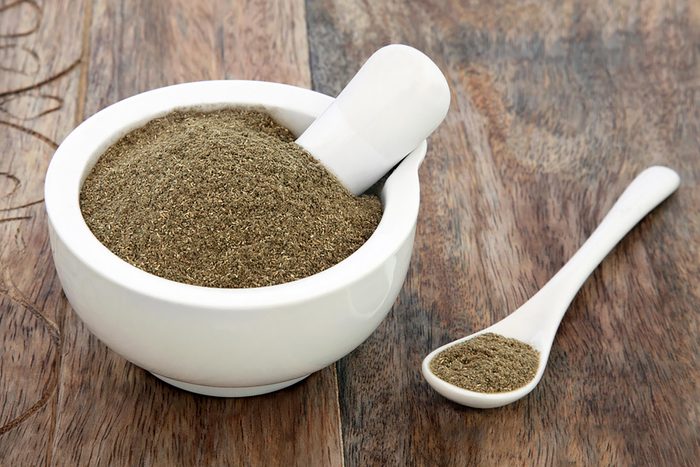
Gymnema sylvestre
- Main use: Lowering blood sugar
- Typical dosage: 200 to 250 milligrams twice daily
This plant’s Hindi name, gurmar, translates as “sugar destroyer,” as the plant is regarded as one of the most powerful herbs for blood-sugar control. It’s believed to work by boosting the activity of enzymes that help cells use glucose or by stimulating the production of insulin. Though it hasn’t been studied extensively, it’s not known to cause serious side effects. A 2017 study published in the journal Appetite found that among 51 healthy participants, those who drank tea containing Gymnema sylvestre reduced their liking for sweet foods, an effect that could have implications for obese and overweight people. Try these healthy habits to prevent diabetes.
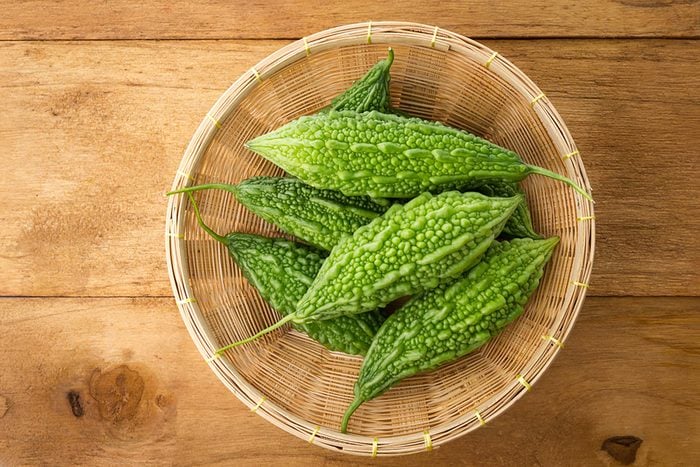
Bitter melon
- Main use: Lowering blood sugar
- Typical dosage: 50 to 100 milliliters (approximately 3 to 6 tablespoons) of the juice daily
The aptly named bitter melon is thought to help cells use glucose more effectively and block sugar absorption in the intestine. A study in the Journal of Ethnopharmacology compared bitter melon to a diabetes drug and found that it did reduce fructosamine in people with type 2 diabetes. However, a low-dose of the already approved medication did so more effectively. In a 2017 study on mice published in Evidence-based Complementary and Alternative Medicine, researchers suggest that bitter melon may reduce high blood glucose in type 1 diabetes. Gastrointestinal problems are possible side effects.
You can reverse type 2 diabetes with these science-backed strategies.
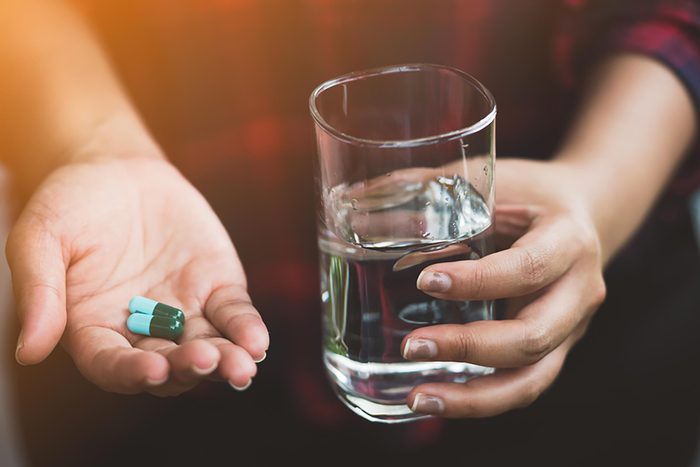
Magnesium
- Main use: Lowering blood sugar
- Typical dosage: 250 to 350 milligrams once a day
Magnesium deficiency is not uncommon in people with type 2 diabetes, and it can worsen high blood sugar and insulin resistance. Research into whether using magnesium supplements improves insulin function and lowers blood sugar levels is inconclusive. If you do have diabetes, have your doctor check you for deficiency before supplementing with magnesium. “If you have kidney damage, which is fairly common in diabetes, your magnesium levels may already be too high,” Shane-McWhorter says. “Excess magnesium may cause low blood pressure and an irregular heartbeat.” These are signs that you’re not getting enough magnesium.
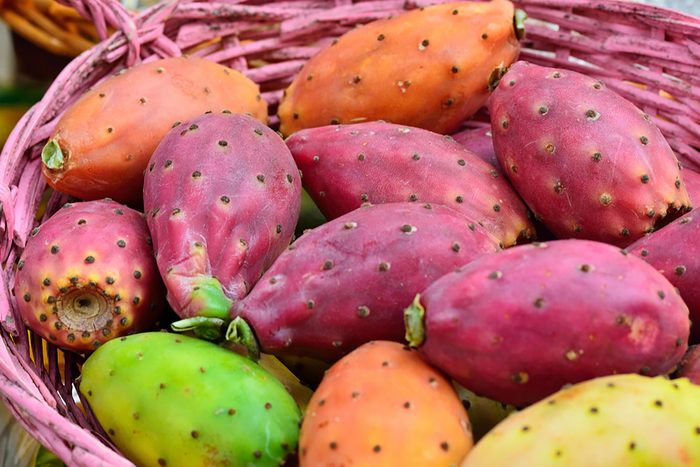
Prickly pear cactus
- Main use: Lowering blood sugar
- Typical dosage: If you eat it as a food, aim for 1⁄2 cup of cooked cactus fruit a day. Otherwise, follow label directions.
The ripe fruit of this cactus has been shown in some small studies, including a 2017 animal study published in Evidence-based Complementary and Alternative Medicine, that found the fruit to lower blood sugar levels in diabetic rats. However, the results of animal studies are not always transferable t humans. You may be able to find the fruit in your grocery store, but if not, look for it as a juice or powder at health food stores. The fruit is also high in fiber. Avoid these bad eating habits for people with diabetes.
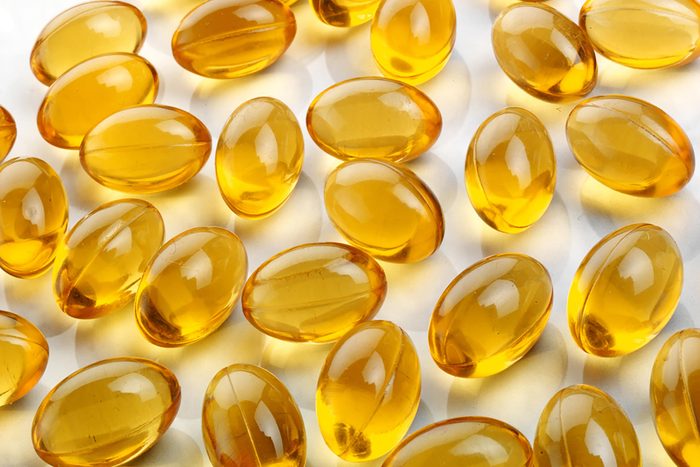
Gamma-linolenic acid
- Main use: Easing nerve pain
- Typical dosage: 270 to 540 milligrams once a day
Gamma-linolenic acid, or GLA, is a fatty acid found in evening primrose oil. Preliminary clinical research suggests that taking GLA for six months or more may reduce symptoms of nerve pain in people with diabetic neuropathy. Here are the best diabetic shoes for men that also help offset neuropathy pain.
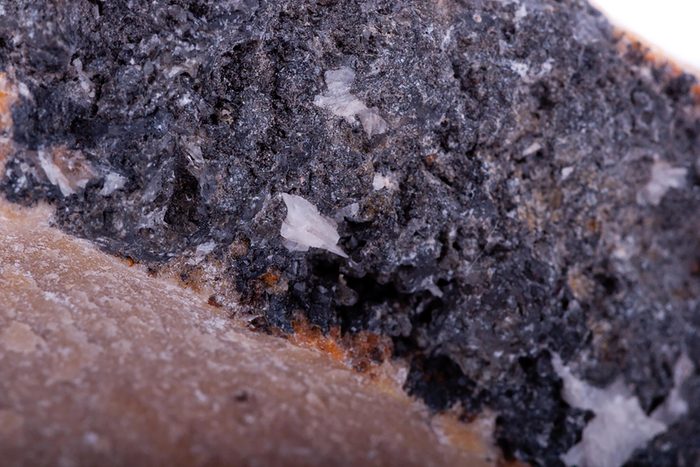
Chromium
- Main use: Lowering blood sugar
- Typical dosage: 200 micrograms once daily
A chromium deficiency is more common among individuals with type 2 diabetes. A popular belief is that taking chromium will help control their disease. However, a review of research published in 2016 in the Oxford Academic Nutrition Reviews suggests that the evidence supporting the benefits of chromium supplements for type 2 diabetes is mixed.
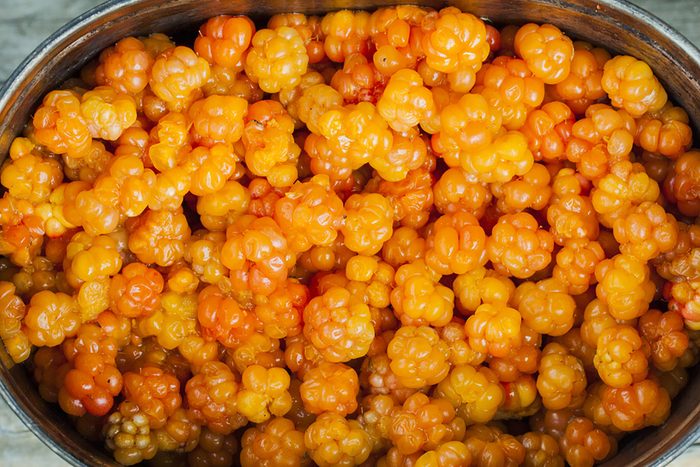
Bilberry
- Main use: Protecting the eyes and nerves
- Typical dosage: 80 to 120 milligrams two times per day of standardized bilberry extract
This relative of the blueberry contains powerful antioxidants in its fruit and leaves. These antioxidants, called anthocyanins, may help prevent damage to tiny blood vessels that can result in nerve pain and retinopathy (damage to the eye’s retina). Although bilberry is promoted most commonly for improving vision, the extract has been reported to reduce blood sugar levels. And another study on adults with metabolic syndrome saw that eating fresh bilberries stimulated insulin secretion, too.
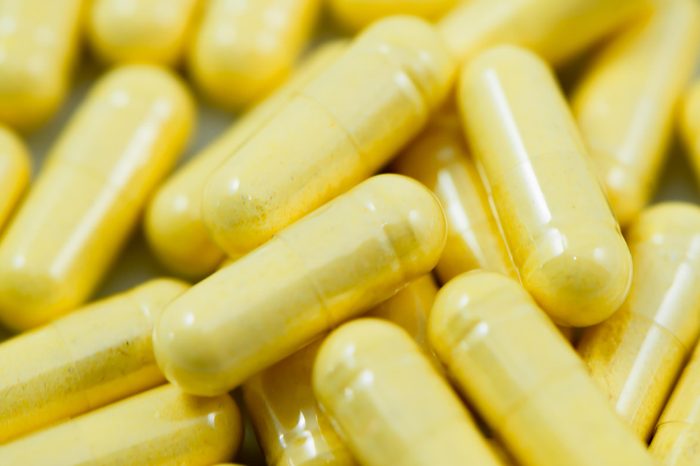
Alpha-lipoic acid
- Main uses: Easing nerve pain, lowering blood sugar
- Typical dosage: 600 to 800 milligrams a day
ALA, short for alpha-lipoic acid, neutralizes many types of free radicals—reactive oxygen atoms that can damage other cells. A build-up of free radicals, caused in part by high blood sugar, can lead to nerve damage and other problems. A 2015 study published in the Canadian Journal of Physiology and Pharmacology found that ALA helps both in the prevention and in the treatment of diabetes. As a treatment for diabetic neuropathy, says Shane-McWhorter, “ALA may help more with early nerve damage than with more advanced problems.” Other studies have shown a decrease in nerve pain, numbness, and burning. Learn key facts about diabetic neuropathy.
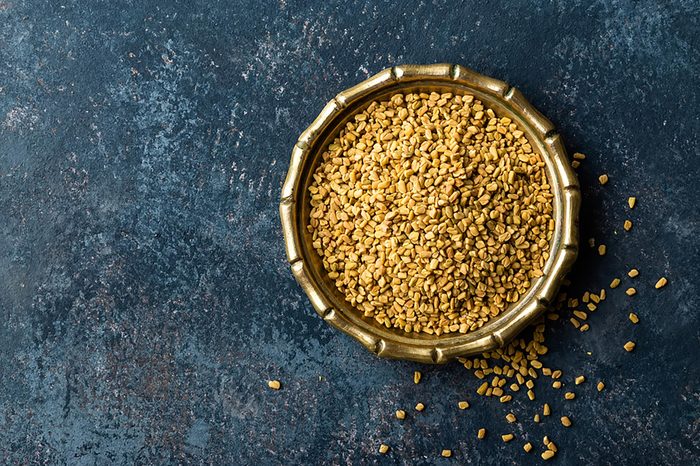
Fenugreek
- Main use: Lowering blood sugar
- Typical dosage: 5 to 30 grams with each meal or 15 to 90 grams with one meal per day
“Fenugreek is an herb that is thought to have a positive effect on metabolism and possibly blood pressure,” says Kellie Rodriguez, a registered nurse and director of the Global Diabetes Program at Parkland Health & Hospital System in Dallas. Yet, research is limited. The effect may be partly due to the seeds’ high fiber content. They also contain an amino acid that appears to boost the release of insulin. One small study, published in 2017 in the journal Ayu, suggests that eating fenugreek may reduce blood glucose levels in people with type 2 diabetes.
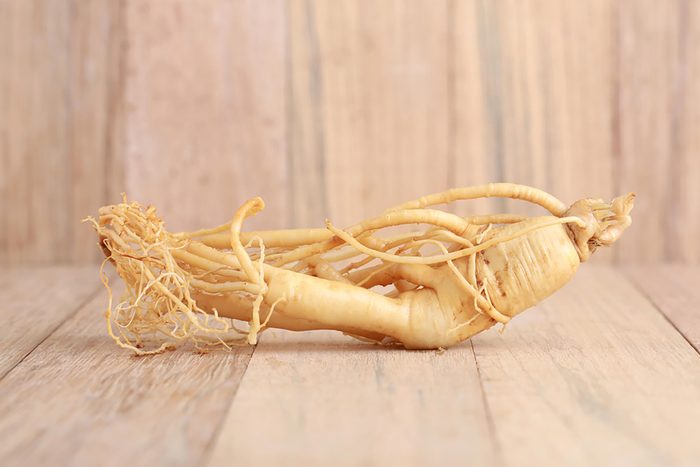
Ginseng
- Main use: Lowering blood sugar
- Typical dosage: 1 to 3 grams a day in capsule or tablet form, or 3 to 5 milliliters of tincture three times a day
Known for its immune-boosting and disease-fighting benefits, this Chinese herb has several positive diabetes studies behind it. Researchers have found that ginseng slows carbohydrate absorption; increases cells’ ability to use glucose; and increases insulin secretion from the pancreas. A team of researchers from the University of Toronto has repeatedly shown that ginseng capsules lower blood glucose compared to placebo pills in people with type 2 diabetes. These are the best superfoods for people with diabetes.
